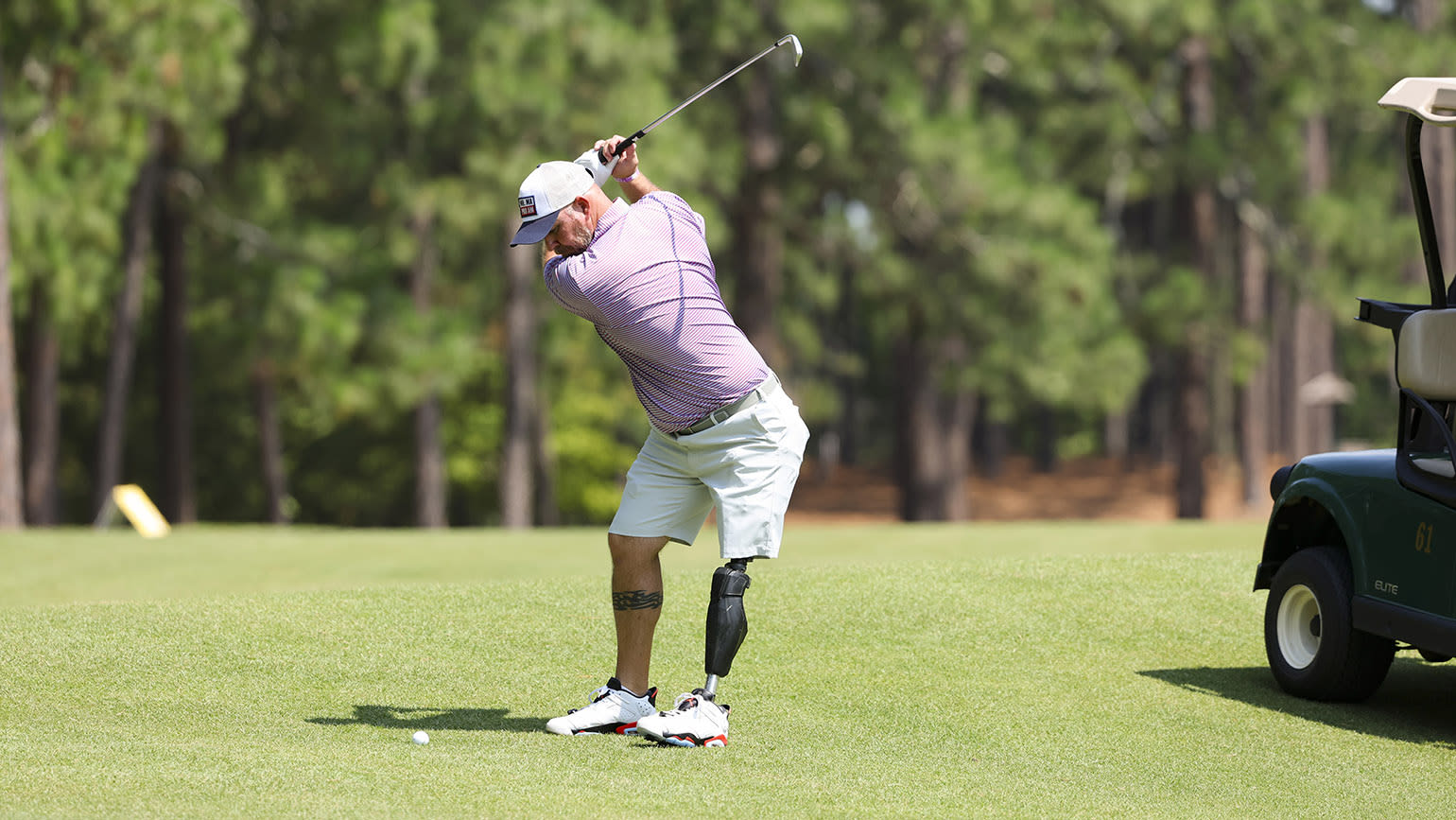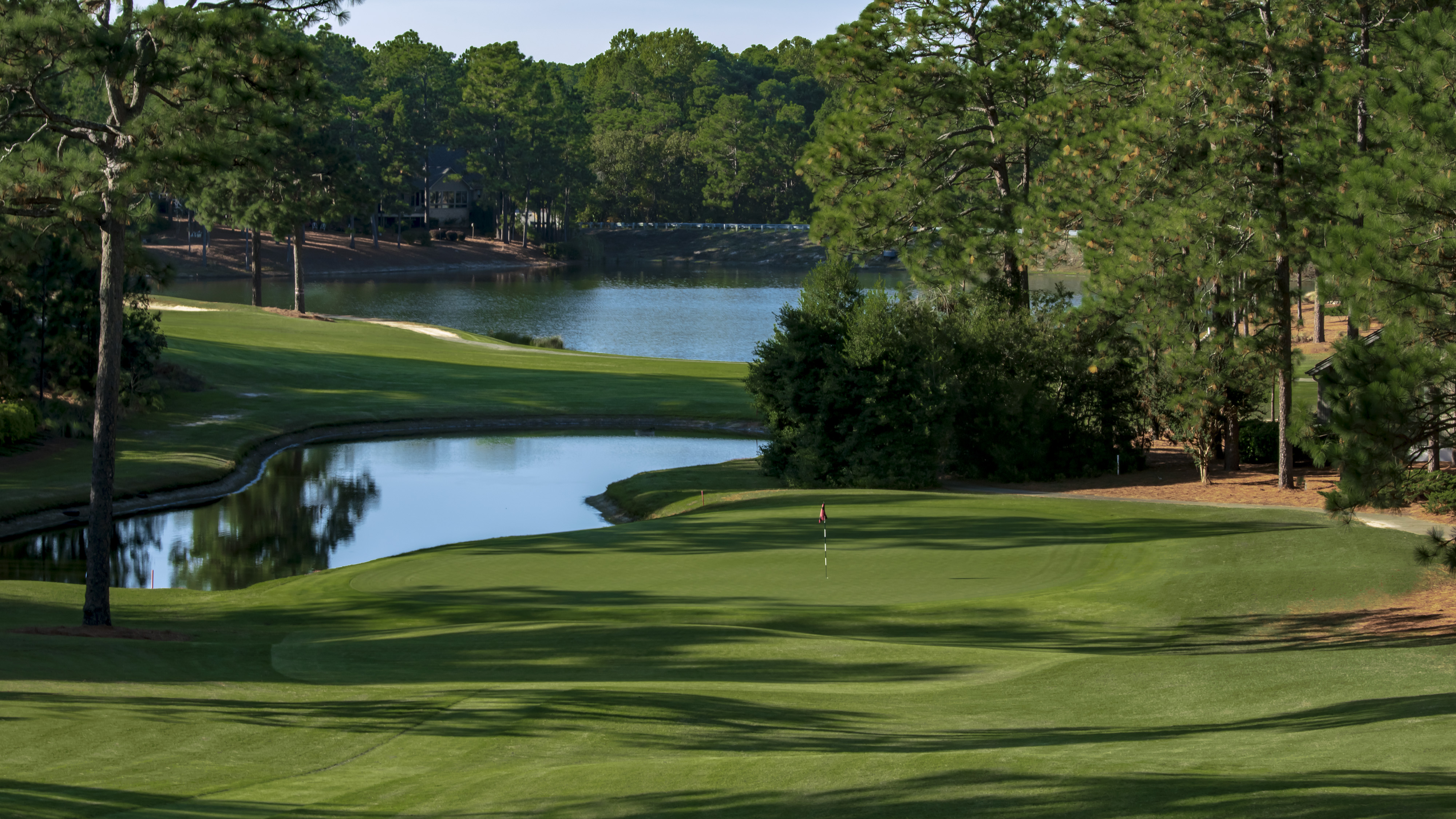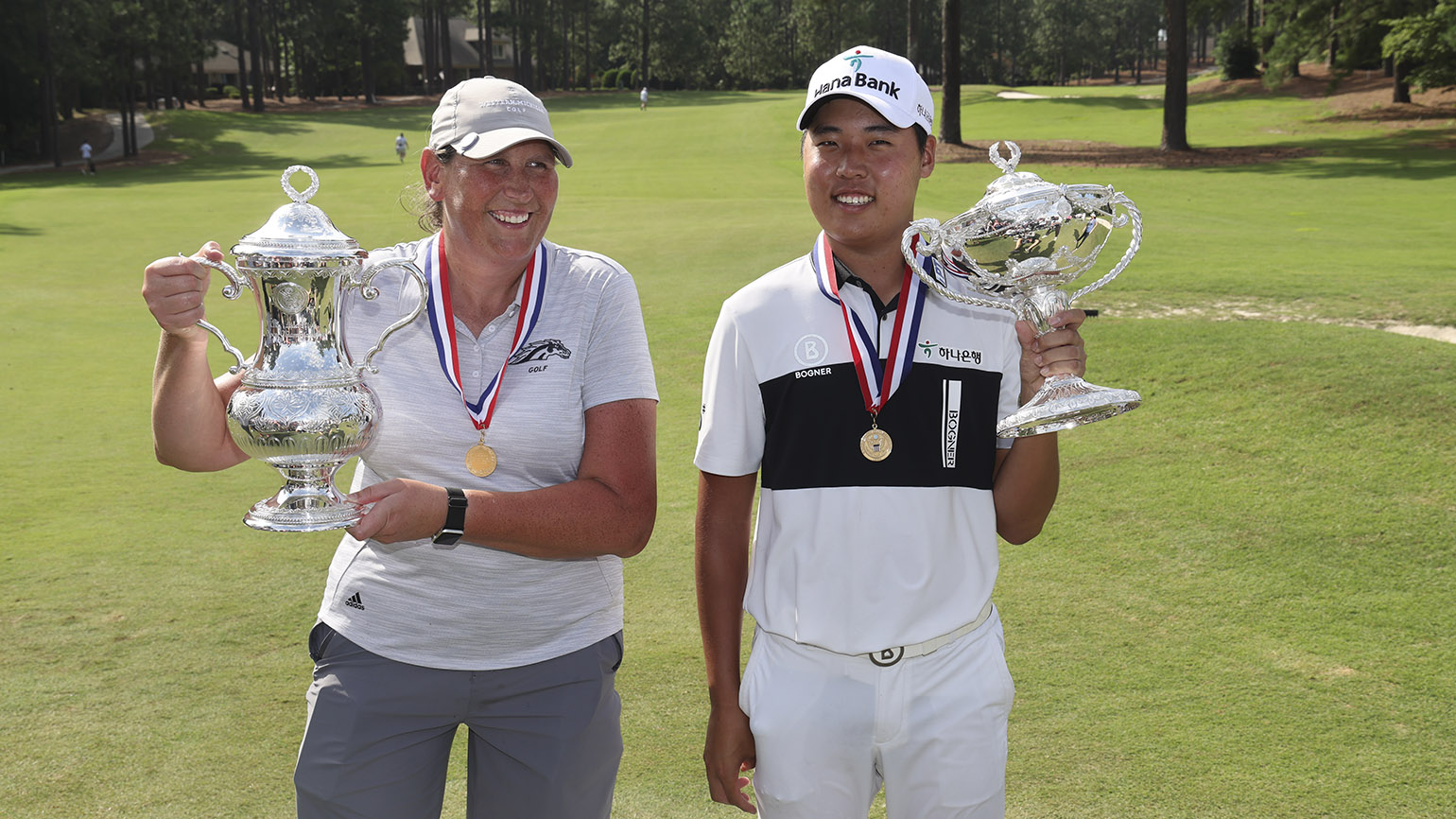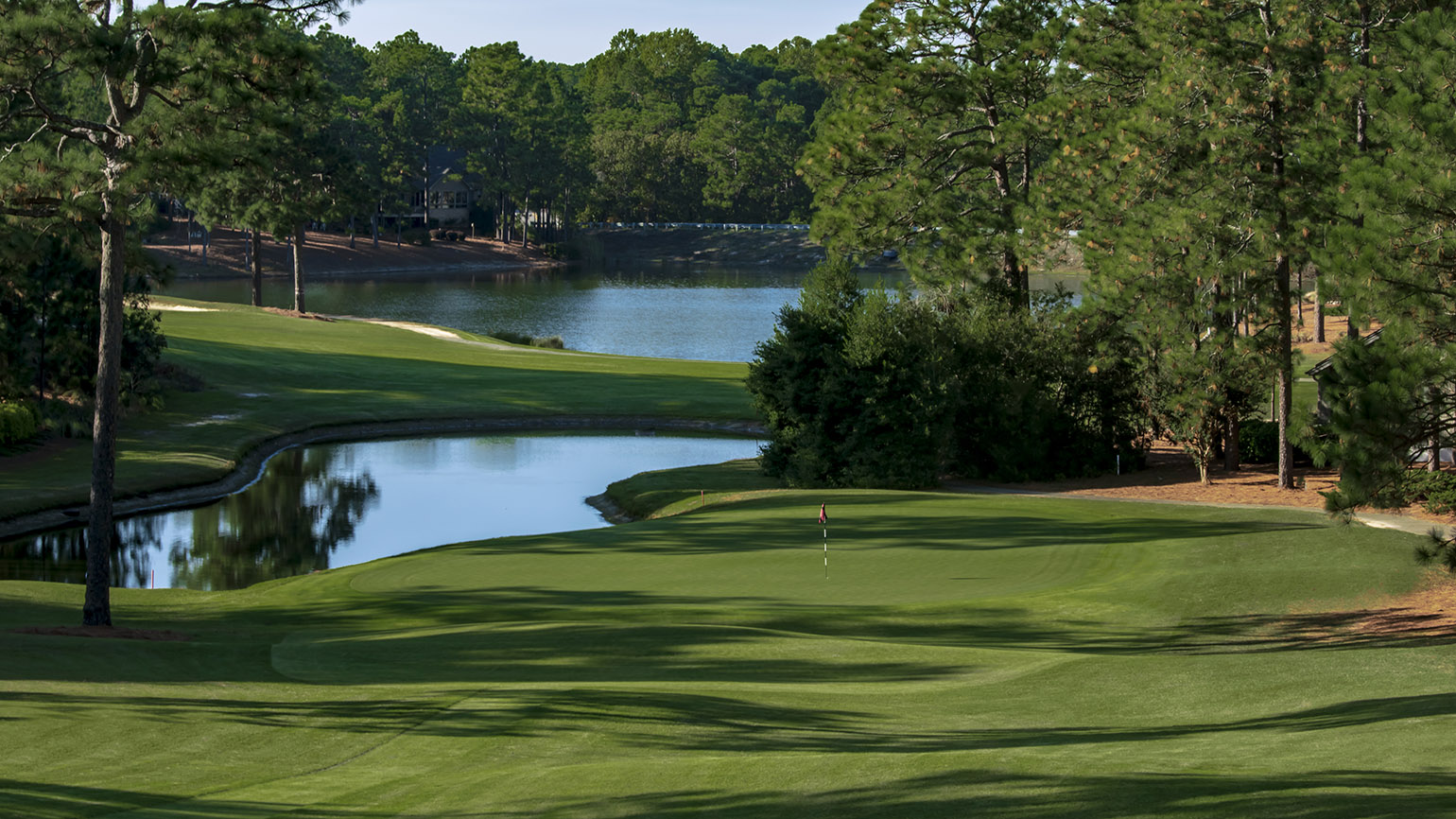U.S. ALL CHAMPIONSHIPS
U.S. Adaptive Open: 3 Things to Know, Round 1
By Greg Midland, USGA

Chad Pfeifer, 41, finished in third place overall in the 2022 U.S. Adaptive Open and is one of 65 returning players in this year’s field at Pinehurst No. 6. (Jeff Haynes/USGA)
Call it an encore performance in the North Carolina Sandhills as the 2nd U.S. Adaptive Open Championship returns to Pinehurst No. 6. Just like last year’s inaugural edition, the atmosphere is filled with the hope and camaraderie that characterizes the 96 players in this field.
Still, this is a USGA championship, and everyone is here to compete. Just ask Cathy Walch, who won the women’s Arm Impairment category in the 2022 championship. The 57-year-old from Buford, Ga., made no bones about her mindset. “When I'm out there [playing], I try just to focus on me and the course,” said Walch. “After we're done, it's time to meet new people and see old friends. So I really look at the tournament as two parts.”
Those two parts add up to so much more than a whole. Pinehurst is a special place to begin with, and the presence of this 54-hole, three-day championship adds to the lore of the region aptly referred to as the home of American golf.
Here are 3 Things to Know heading into Monday’s opening round.
Familiar and Fresh Faces
Sixty-five players in the field competed in last year’s inaugural U.S. Adaptive Open, meaning 31 players – nearly one-third of those here – are making their first appearance in the championship. While the returning players may have the edge in terms of familiarity with Pinehurst No. 6 and experience dealing with the pressure of competing for a USGA title, the newcomers bring fresh energy as well as some serious game.
The presence of so many first-time competitors is partly due to some adjustments to the qualification criteria, including a requirement that applicants must post a minimum of eight new scores within the past year to be eligible. With no qualifying rounds yet established for this championship, Handicap Indexes are the primary means to determine the strongest possible field.
There are 22 players in the field with Handicap Indexes of scratch or better, led by defending men’s champion Simon Lee, who is one of four players sporting an impressive +3.7 Handicap Index. Defending women’s champion Kim Moore is a 2.3, best of the female competitors.
Rules Modifications
The U.S. Adaptive Open features competitors with one of eight different impairment categories, and there are modifications to the Rules of Golf to allow these players to compete fairly with anyone else. The revised Rules of Golf that went into effect on Jan. 1, 2023, now include Rule 25 to cover these modifications.
Some things seen at the U.S. Adaptive Open that are not seen in other USGA championships include the use of a guide for visually impaired golfers; help with dropping, placing and replacing a ball for amputee golfers; and permitted use of a mobility device, even in bunkers or on greens, for seated golfers.
For this year's championship, the USGA is piloting a Local Rule in effect that allows a seated player the option to drop a ball, without penalty, if their shot finishes in a part of a bunker where they cannot position their wheeled mobility device to play the shot. The reasoning is that the design and shape of bunkers often create situations where it is either not possible or would require unreasonable effort for a seated player to position themselves to make a stroke on their intended line of play due to the size and maneuverability of wheeled mobility devices. One example of such a situation includes when the wall, lip or slope around the bunker prevents a player from taking their stance. When such a situation exists, this Local Rule allows the player the option of taking free relief within the same bunker. This Local Rule in effect for the U.S. Adaptive Open is part of the effort to make the Rules of Golf applicable and equitable to everyone who plays the game.
Angling for a Repeat
The U.S. Adaptive Open is still in its infancy, meaning the record book for this championship is the slimmest of any USGA championship. This year, however, a number of players have the opportunity to repeat their winning performances from 2022 and make some history in the process.
In addition to defending overall men’s champion Simon Lee, of Korea, and Kim Moore, of Portage, Mich., all eight women’s category winners and six of eight men’s category winners are back this year. Among the players to watch are Chad Pfeifer, of Caldwell, Idaho, who won the men’s Leg Impairment category in 2022 and finished third overall; Kipp Popert, of England, who won the men’s Neurological Impairment category last year and also finished runner-up in the inaugural G4D Open conducted by the R&A this past May; and Ryanne Jackson, of St. Petersburg, Fla., an EMT who was the 2022 winner of the women’s Neurological Impairment category.
For any of these players to earn another medal or trophy in 2023, they will have to rise to the occasion against a strong field filled with hopefuls looking to make history of their own. First- and second-round tee times can be found here.
More From the 2nd U.S. Adaptive Open

Feb 07, 2023

Jul 07, 2023
USGA Partners












